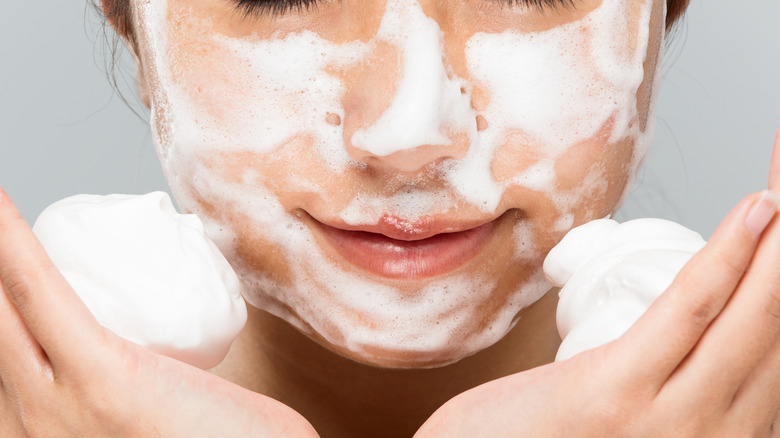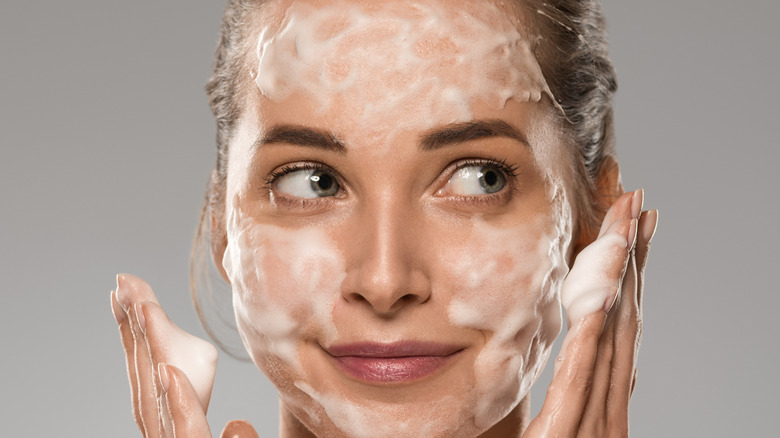What Does Sodium Hydroxide Do For Your Skin?
Finding what's right for your skin type as opposed to what skincare products are trending can be a matter of trial and error. An example of this is the St Ives apricot body scrub. Many swore by this product for a long time before allegations of the scrub being too harsh on the face surfaced. Witch Hazel toners also enjoyed their moment as a favorite in the skincare world before it got exposed for being too strong and irritating the skin. This is why many people prefer going to dermatologists to skip this trial-and-error phase.
But without a dermatologist, there are a few things you should know that are bad for your skin. Things like bleach and hemorrhoid cream shouldn't be part of your skincare routine, particularly if you've got sensitive skin. However, there are household items that can be part of your skincare routine, via Healthyway. Whether or not this includes items like sodium hydroxide is now a different conversation entirely.
If you're interested in knowing what sodium hydroxide does to the skin, this article is for you.
The effects of sodium hydroxide on your skin
Sodium hydroxide is also known as lye, and it is an ingredient that is commonly found in soaps and other cleansing products, writes Cosmetics Info. It is a known irritant, and is usually only seen in its pure form in the process of manufacturing. However, if you're handling it, you should know that sodium hydroxide in its pure form is very caustic, and can cause skin and eye irritation, according to RusticWise. It can also cause respiratory problems if inhaled, and can be very poisonous when ingested. Products with sodium hydroxide can also give you rashes, hives, irritation and itching.
Despite that, it doesn't mean that skincare products with sodium hydroxide are totally unsafe. For the most part, skincare products usually contain sodium hydroxide to balance their pH and keep the product from damaging your skin's acid mantle.
According to Cel, if you have sensitive skin, you should steer clear of skincare products that contain sodium hydroxide — or at least, always run a check by using a tiny bit of the product on a part of your body other than your face, and wait for 24 hours to see how your skin would react to it and if there are any side effects.

